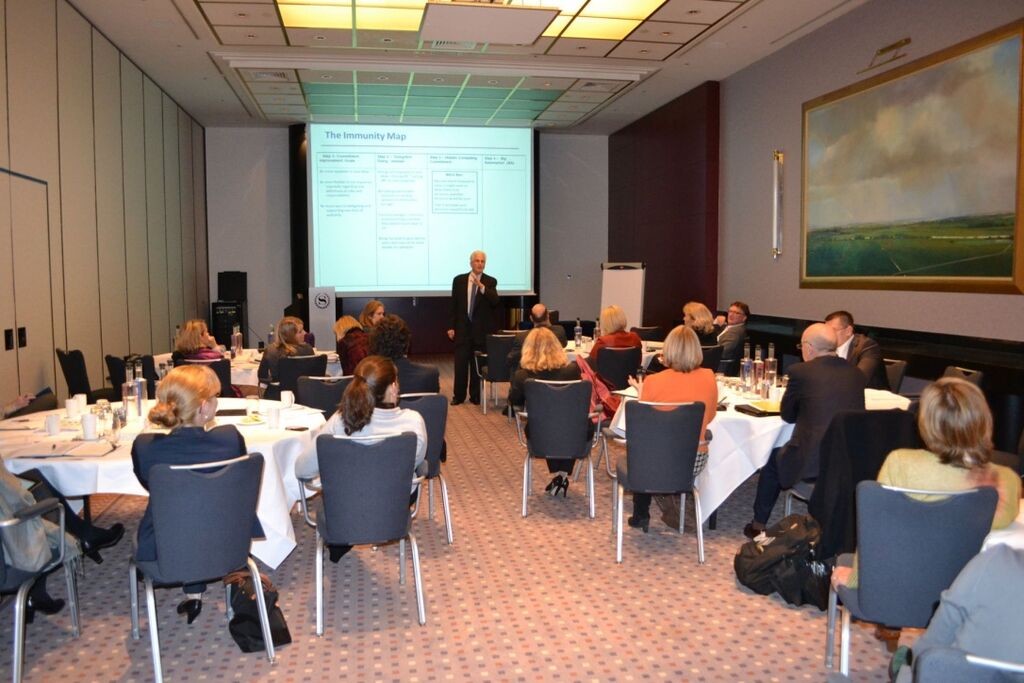by Leland Sandler | Sep 4, 2015 | Executive Advisor, Hiring, Leland Sandler
The hiring process is no easy task. When hiring new employees, CEOs are faced with many challenging decisions that will have a major impact on the success and future of their company. It is important for a CEO to understand that hiring is both a science and an art. There are logical processes a CEO needs to go through in selecting a key hire including reviewing resumes, references, CVs, etc., but there is also an art to it. The art involves being as objective as possible throughout the entire process.

In my experience as an executive advisor, I have seen many clients fall into the same trap of looking for someone who is too much like themselves. They look for someone they are compatible with and can enjoy being around. While this may be a good quality, the most important question a CEO must consider is whether or not the person can take on the role and execute at a level that the company needs.
Choosing the wrong hire can have detrimental effects on a company, bringing down employee morale, decreasing productivity, damaging client relations, and more. This is why an executive advisor can be so helpful when it comes to the hiring process. An executive advisor offers a fresh perspective and outside point of view to help CEOs make well thought out, objective decisions on who to bring into their company.
Listed below are several qualities to look out for when looking for the best new hires for your company:
Energy:
One of the greatest qualities to look for in a new employee is energy. The individual should demonstrate that they have what it takes to give 100% every day. At the same time, their high energy levels will reflect positively on other employees and motivate them to do the same.
Passion:
A second essential quality for a good employee is passion. The individual should be passionate about what the company is all about. If the person is not genuinely excited about the product or their particular role in the company, there is a good chance they will not be willing to give everything they have towards completing company goals.
Meets Specific Job Requirements:
The most important and seemingly obvious quality that all good employees should possess is the ability to meet the specific requirements of their job title. Sometimes a CEO may overlook this and focus more on how they engage and interact with the individual. While this is a important consideration, one must think about what type of individual will be able to get things done for the company. A person may be likable, but if they cannot bring in results and tangible value, they are really only slowing the company down.
Cultural Fit
Identifying the qualities that will lead to quality interaction and fit in with the company’s culture and with other employees is the final piece. Uncovering the way a candidate will live up to the real operating principles of the company cannot be undervlued. This “fit” between candidate and principles is a determining factor of long term success for the candidate and the organization.
by Leland Sandler | Aug 17, 2015 | Executive Advisor, Leland Sandler, Networking, The Sandler Group

Executive Advisor Leland Sandler speaking at an HR Conference in Amsterdam
As an executive advisor, I strive to help professionals expand their presence, knowledge, and leadership skills in today’s complex and ever growing business world. One of the most significant and effective ways to progress your career is through the practice of networking.
Some business professionals believe that the best way to succeed is to focus entirely on oneself and one’s own work. They believe it is better to concern themselves with their own responsibilities and aspirations than to look around at what everyone else is doing. However, while growing as an individual is certainly significant, engaging and communicating with other professionals in your field is equally important; in fact it is essential.
Job networking plays a key role in the success of your career and of your business. The larger your business network, the larger potential you have to gain customers, job opportunities, recognition, and resources. Listed below are several essential networking techniques for any professional looking to increase their influence and success while creating real, powerful change in their industry.
1. Social Media
In today’s internet based society, many people are engaging more online than they are in person. Social media has provided us with numerous unique platforms that allow us to engage and interact with people who share our interests from all around the world. Through sites like Linkedin, Twitter, Crunchbase, About.me, and more, we are able to make connections with people we might otherwise never come into contact with. For this reason, building professional profiles and participating in conversations online are essential aspects of successful networking.
2. Conferences and Seminars
While social media has come to play a major role in today’s professional networking strategies, classic, face to face interactions are still very relevant and important. Attending conferences and seminars provides a great opportunity to make real, in person connections with leaders in your industry. Many conferences will provide published lists of all attendees of the event. To get a head start in the networking process, make a list of specific individuals you would like to meet that may help you gain valuable insight and move forward in your career endeavors.
3. Networking is a Two-Way Street
It is important to remember that networking is not meant to be used only for your own benefit. Instead, networking should be viewed as a two-way street. Networking isn’t all about figuring out how you can best gain from connecting with another individual. Networking is about building mutually valuable relationships. It is best if your goal in connecting with another is to see what value you can provide to them. If one side is gaining everything and giving nothing in return, the relationship is sure to fail or be very short lived.



Follow Me